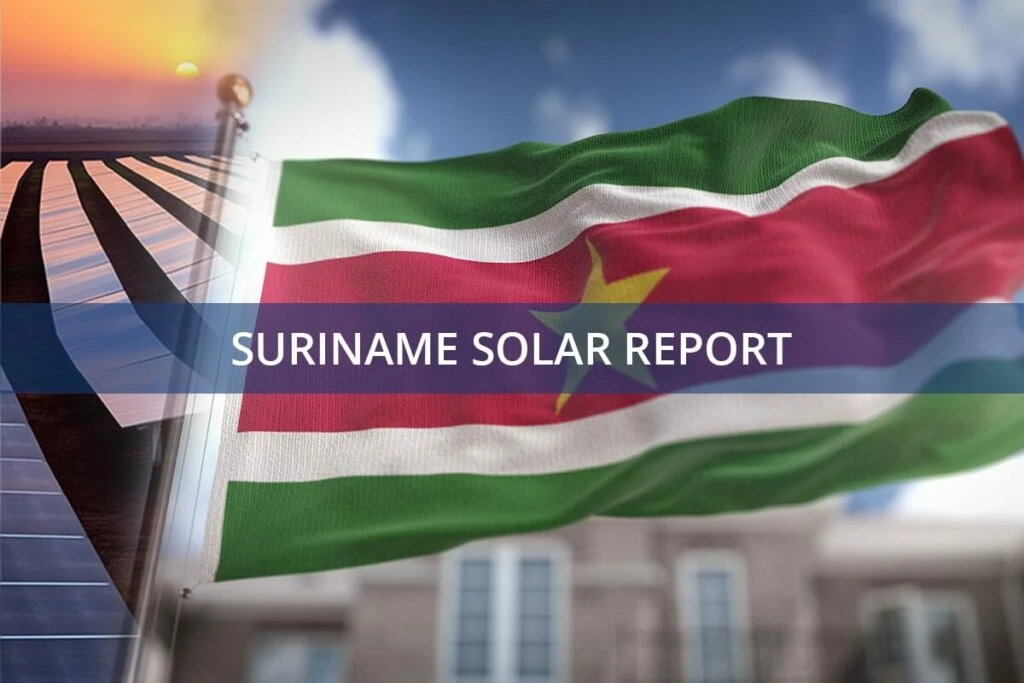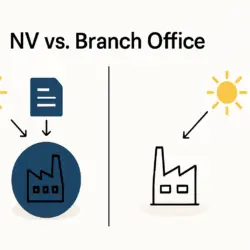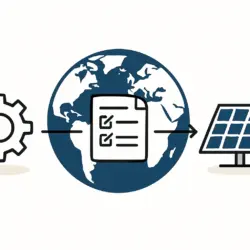A landmark partnership between PowerChina and Risen Energy is set to bring sustainable energy solutions to remote villages in Suriname, transforming lives and fostering green development. This collaboration aims to improve energy access in rural areas, promoting economic growth and significantly enhancing the quality of life for residents long dependent on outdated power sources.
Collaboration for Remote Villages with Suriname solar energy
PowerChina announced its collaboration with the renowned Chinese PV module manufacturer Risen Energy to deliver clean energy microgrids to remote villages deep within the Suriname forest. These projects are designed to create a foundation for sustainable economic development and improve daily life for local communities. Understanding the basics of solar panel manufacturing is key to appreciating the technology at the heart of this initiative.
While initial plans outlined a phased rollout, recent reports indicate a massive leap forward. The project has successfully energized seven forest villages with an impressive 5 MW of photovoltaic (PV) capacity and 14 MWh of energy storage. This powerful combination ensures a stable and reliable power supply, a significant upgrade from the previous energy infrastructure. The broader Suriname PV microgrid project aims to eventually provide continuous power to a total of 34 villages, marking a comprehensive effort to address energy poverty in the region.
Benefits of the Suriname solar energy Project
The project is set to revolutionize the energy landscape for the villages involved, which have historically relied on costly, noisy, and inefficient diesel generators. By replacing these generators with silent, clean solar power and battery storage systems, the initiative will drastically reduce both energy costs and environmental impact.
Beyond supplying electricity to households, the project will provide consistent power to critical community infrastructure, including schools, health centers, and water treatment facilities. This ensures improved access to clean drinking water, better educational opportunities, and more reliable healthcare services, contributing directly to community well-being and resilience.
By investing in solar energy and storage, the project strongly supports Suriname’s national goal of reducing carbon emissions. The transition from fossil fuels to solar power will lead to a substantial decrease in greenhouse gas emissions, aligning the country’s local development with global climate action efforts.
Suriname’s Solar Potential for Suriname solar energy
Suriname’s tropical rainforest climate provides abundant sunlight year-round, making it an ideal location for solar power generation. The country’s average solar radiation is approximately 5.5 to 6.0 kWh/m² per day, a highly favourable resource for photovoltaic projects.
Despite this potential, the nation’s renewable energy capacity is still in its early stages. According to the International Renewable Energy Agency (IRENA), Suriname had an installed renewable energy capacity of 62 MW in 2020, primarily from hydroelectric power. Solar energy constituted only a small fraction of this total.
However, the tide is turning. The PowerChina and Risen Energy microgrid project is a significant step, but it is part of a larger national movement. Other ambitious initiatives are also underway, including the development of a 30 MWp solar park and another project that saw the successful delivery of 10,000 solar panels. For those interested in a deeper analysis of the market, a comprehensive Suriname solar panel manufacturing report offers detailed insights. You can follow all of these developments in the Suriname solar news archives.
A Model for Future Renewable Energy Projects with Suriname solar energy
The collaboration in Suriname serves as an exemplary model for future renewable energy projects in other developing nations. By leveraging the power of solar energy combined with battery storage, these initiatives offer sustainable and scalable solutions to energy access challenges, particularly in remote and underserved regions.
The success of this project highlights the critical role of international partnerships and advanced technology in driving sustainable development. The complete solar panel manufacturing process has become so efficient that it enables cost-effective deployment on a global scale.
The project’s focus on decentralized microgrids reflects a global trend towards more resilient and adaptable energy systems tailored to local needs. This approach not only enhances energy security but also empowers communities, giving them control over their own clean energy future. To learn more about the technical and financial aspects of setting up such systems, consider enrolling in our free e-course on solar panel manufacturing.



